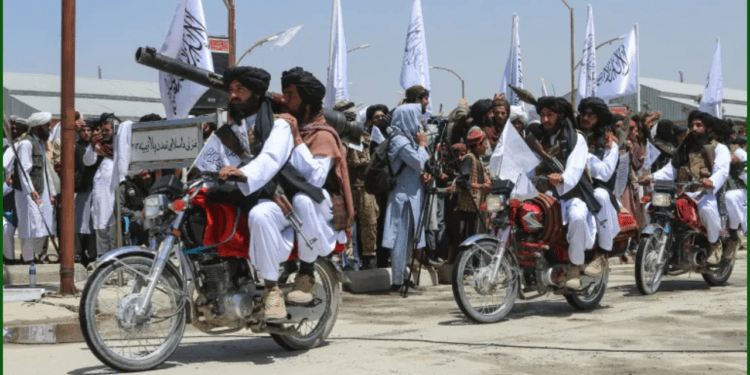In a stark reminder of the Taliban’s brutal judicial practices, Afghanistan’s Supreme Court announced the public execution of four men on Friday, marking the highest number of executions in a single day since the group’s return to power in 2021. The killings, carried out in sports stadiums across three provinces, have drawn sharp condemnation from human rights groups and reignited fears about the regime’s escalating use of capital punishment.
The executions took place in Qala-i-Naw, the capital of Badghis province, Zaranj in Nimroz province, and Farah city in Farah province. In Qala-i-Naw, two men convicted of murder faced a grim fate as relatives of their victims fired multiple shots into their backs before a crowd of onlookers. Witnesses described a chilling scene: the condemned men were seated, facing away from the spectators, as the executioners delivered justice under the Taliban’s interpretation of “retaliatory punishment.” Mohammad Iqbal Rahimyar, a 48-year-old resident, recounted the event to local journalists, noting the solemn atmosphere that gripped the stadium.
The Supreme Court claimed the cases were “examined very precisely and repeatedly” before the sentences were carried out. Families of the victims, given the option to grant amnesty, chose to proceed with the executions, a decision some locals supported as divine justice. “It’s God’s order, and it must be followed,” said Zabihullah, a 35-year-old spectator, though he acknowledged that forgiveness would have been preferable.
The other two executions in Zaranj and Farah followed similar protocols, though details remain sparse. Official notices had invited Afghans to attend the events, signaling the Taliban’s intent to make these spectacles a public deterrent. Since their return, the Taliban have executed 10 men publicly, a tally that pales in comparison to the widespread executions during their 1996-2001 rule but underscores a troubling resurgence of such practices.
Amnesty International swiftly condemned the executions, labeling them a “gross affront to human dignity” and urging the Taliban to halt public killings. The group highlighted Afghanistan’s inclusion in its annual report on death penalties, noting that trials under the Taliban often fail to meet international fair trial standards. The United Nations has echoed these concerns, pointing to a broader pattern of human rights abuses, including corporal punishments like flogging for offenses such as theft and adultery.
All execution orders are personally approved by the Taliban’s elusive Supreme Leader, Hibatullah Akhundzada, who operates from Kandahar and rarely appears in public. His endorsement of such measures recalls haunting images from the Taliban’s first regime, including the 1999 execution of a woman in a Kabul stadium—an event that shocked the world.
Friday’s executions follow a November 2024 killing in Gardez, where a murderer was shot by a victim’s relative before thousands. As the Taliban tightens its grip, the international community faces a dilemma: how to engage with a regime that openly defies global human rights norms. For Afghans, the return of stadium executions signals a grim chapter, where justice is swift, public, and unforgiving.

















































